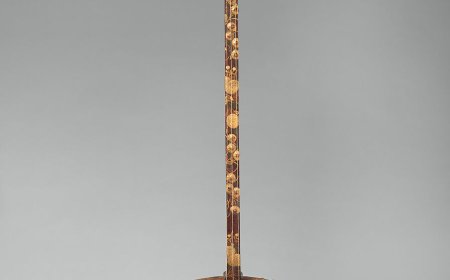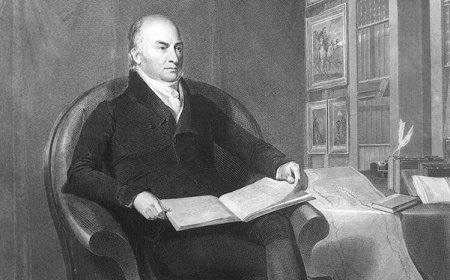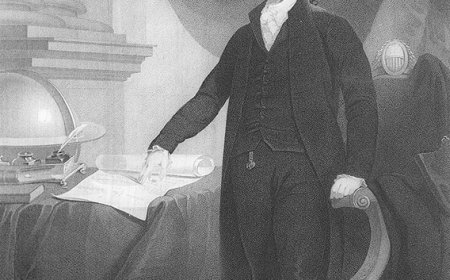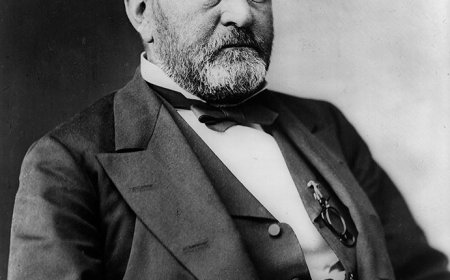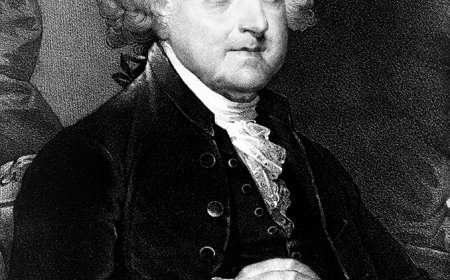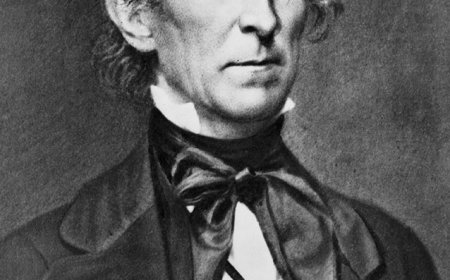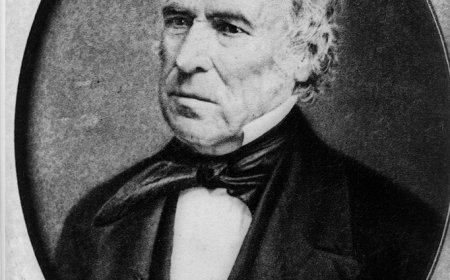Andrew Jackson Biography for Students | Early Life, Presidency & Legacy
Learn about Andrew Jackson, the 7th President of the United States and a hero of the Battle of New Orleans. Discover his early life, military career, presidency, and controversies—including the Indian Removal Act—plus vocabulary, fun facts, a quiz, and a kid-friendly summary.
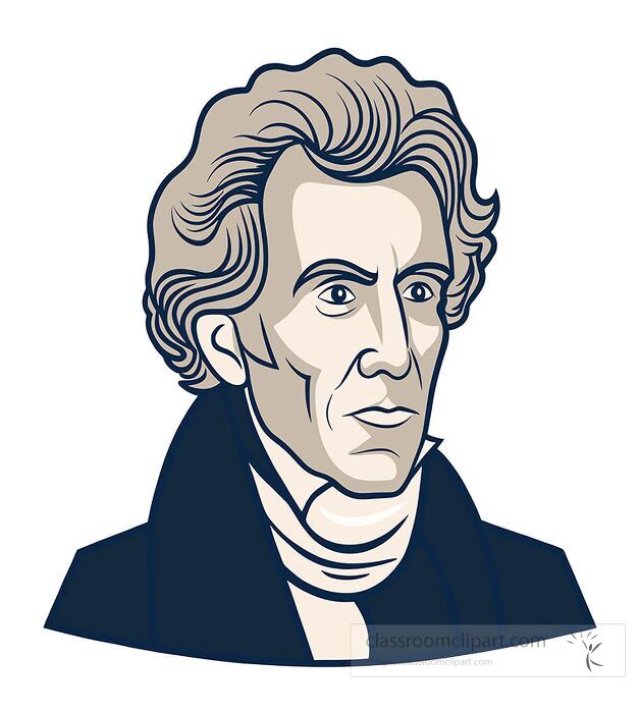
🇺🇸 Andrew Jackson Biography for Students | Early Life, Presidency & Legacy
🧭 Introduction
Andrew Jackson was the 7th President of the United States, serving from 1829 to 1837. Known as the first "people’s president," he was admired for being tough, patriotic, and a war hero. Jackson believed in strong leadership and wanted the government to serve everyday Americans. However, his presidency was also controversial—especially for his treatment of Native Americans through the Indian Removal Act. Jackson’s bold style changed the presidency forever, and he remains one of the most debated leaders in U.S. history.
👶 Early Life and Education
Andrew Jackson was born on March 15, 1767, in the Waxhaws region on the border of North and South Carolina. He grew up in a poor farming family and faced hardship early. His father died before he was born, and he lost his mother and two brothers during the Revolutionary War, which left him an orphan by age 14.
Jackson had little formal education but worked hard and eventually became a lawyer. He moved to Tennessee, where he built a successful legal and political career.
🏛 Military and Political Career Before Presidency
Before becoming president, Jackson was best known for his military success. He earned national fame for:
-
Leading American forces in the Battle of New Orleans during the War of 1812, where he defeated the British in a stunning victory
-
Fighting in earlier conflicts like the Creek War and First Seminole War
Jackson also served in various government roles:
-
Member of Congress
-
Senator from Tennessee
-
Military Governor of Florida
His strong personality and reputation as a self-made man made him very popular with everyday citizens.
🇺🇸 Presidency Overview
Andrew Jackson became president in 1829 after defeating John Quincy Adams in a highly emotional election. His supporters called him the voice of the “common man,” while his critics feared he had too much power.
Jackson was the first president from west of the Appalachian Mountains, and he brought a new style to the White House. He believed in:
-
Stronger executive power
-
Democracy for white men (but not for women, Native Americans, or African Americans)
-
Challenging the wealthy elite
Major events and decisions during his presidency included:
-
The Indian Removal Act (1830)
-
The fight against the Second Bank of the United States
-
The Nullification Crisis with South Carolina over federal tariffs
-
Expanding the power of the presidency through the use of the veto
⚖️ Domestic Policies and Programs
Jackson believed in giving more power to the people, but only certain people—specifically white men. He supported expanding voting rights to all white men, not just landowners.
Some key policies and events:
-
Indian Removal Act: Forced Native American tribes to move west of the Mississippi River. This led to the Trail of Tears, where thousands died on the forced march.
-
Vetoing the national bank: Jackson believed the Bank of the United States was too powerful and favored the rich. He vetoed its renewal and removed federal money from it.
-
Spoils System: Jackson gave government jobs to his supporters, a practice criticized as unfair.
Though Jackson was praised by many during his time, today, some of his actions are seen as harmful and unjust.
🌍 Foreign Policy and Global Relations
Jackson’s foreign policy was less eventful than his domestic actions, but he stayed strong on American independence and trade. He:
-
Refused to let European nations interfere with U.S. trade
-
Settled disputes with France and Great Britain peacefully
-
Supported trade expansion in Latin America
His main focus stayed on domestic affairs and the power of the federal government.
🧾 Legacy and Historical Impact
Andrew Jackson reshaped the presidency. He was the first to use the veto power frequently as a political tool, not just to stop unconstitutional laws. He also created the modern Democratic Party.
Jackson’s legacy includes both praise and criticism:
-
🌟 Praised for: Expanding democracy (for white men), standing up to the elite, being a strong leader
-
⚠️ Criticized for: The Indian Removal Act, harsh treatment of Native Americans, supporting slavery
Jackson’s image has appeared on the $20 bill, though there is debate about whether it should remain.
👨👩👧 Personal Life and Family
Andrew Jackson married Rachel Donelson Robards in 1791. Their marriage was controversial because she was not officially divorced at the time. Jackson deeply loved her, and when she died shortly before he became president, he blamed her death on the stress caused by public attacks.
Jackson had no biological children but adopted several, including a Native American boy. He lived at his Tennessee estate called The Hermitage, where he farmed and owned enslaved people.
He died on June 8, 1845, and is buried at The Hermitage.
💬 Famous Quotes
“One man with courage makes a majority.”
Jackson believed that strong will and determination could lead to victory.
“I was born for a storm, and a calm does not suit me.”
This quote shows Jackson’s bold and combative nature.
💡 Interesting Facts About Andrew Jackson
-
He was the first president to survive an assassination attempt.
-
Jackson fought in over 100 duels to defend his honor.
-
He had a bullet lodged in his chest from a duel for most of his life.
-
He adopted a Native American child, despite later removing Native tribes.
-
His pet parrot reportedly swore at his funeral!
📚 Vocabulary Words
| Word | Definition |
|---|---|
| Veto | When the president refuses to sign a bill into law |
| Indian Removal Act | A law forcing Native American tribes to move west of the Mississippi |
| Spoils System | Giving government jobs to political supporters |
| Nullification | When a state tries to cancel a federal law |
| Trail of Tears | The forced and deadly march of Native Americans to the West |
✅ Interactive Quiz
Q1: What number president was Andrew Jackson?
A. 5th
B. 6th
C. 7th ✅
D. 8th
Q2: What battle made Jackson a national hero?
A. Gettysburg
B. Yorktown
C. Battle of New Orleans ✅
D. Battle of Bunker Hill
Q3: What was the Indian Removal Act?
A. A treaty with Native tribes
B. A law to give Native Americans land
C. A law to force Native tribes off their land ✅
D. A tax law
Q4: What is the “Trail of Tears”?
A. A famous hiking trail
B. A Native American holiday
C. A route where many Native Americans died during forced relocation ✅
D. A map from the War of 1812
Q5: What political party did Jackson help create?
A. Republican
B. Whig
C. Democratic ✅
D. Federalist
Scoring:
5/5 = ⭐ Jackson Genius
3–4 = 👍 Great Job
1–2 = 📘 Review Time





























